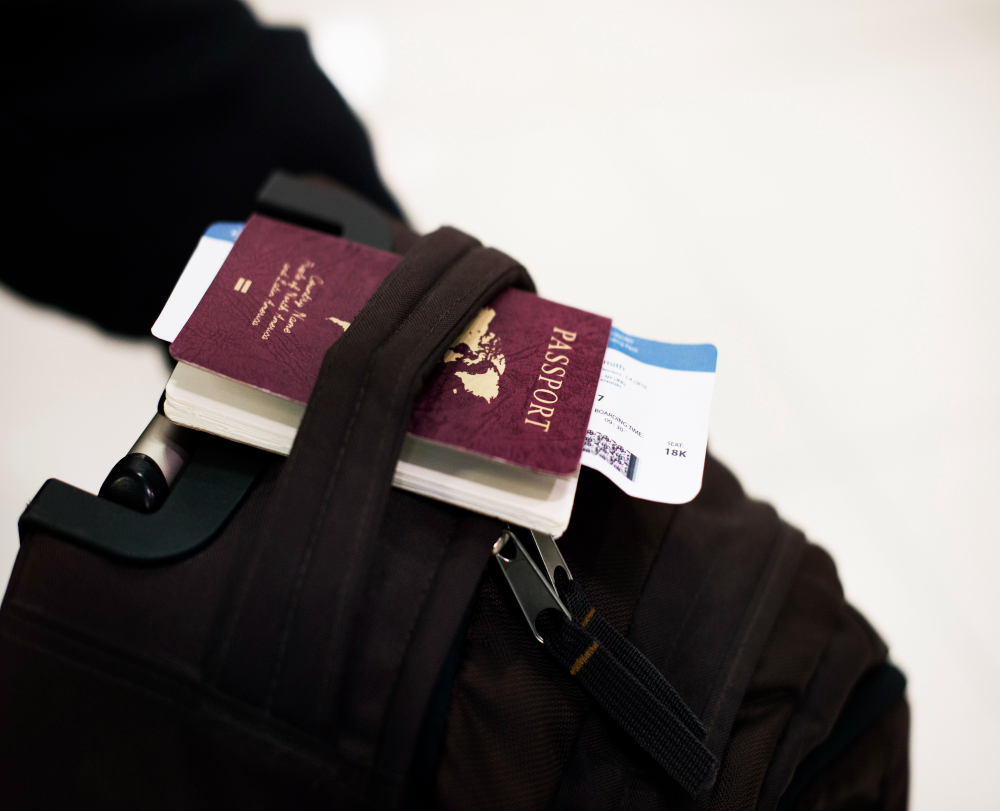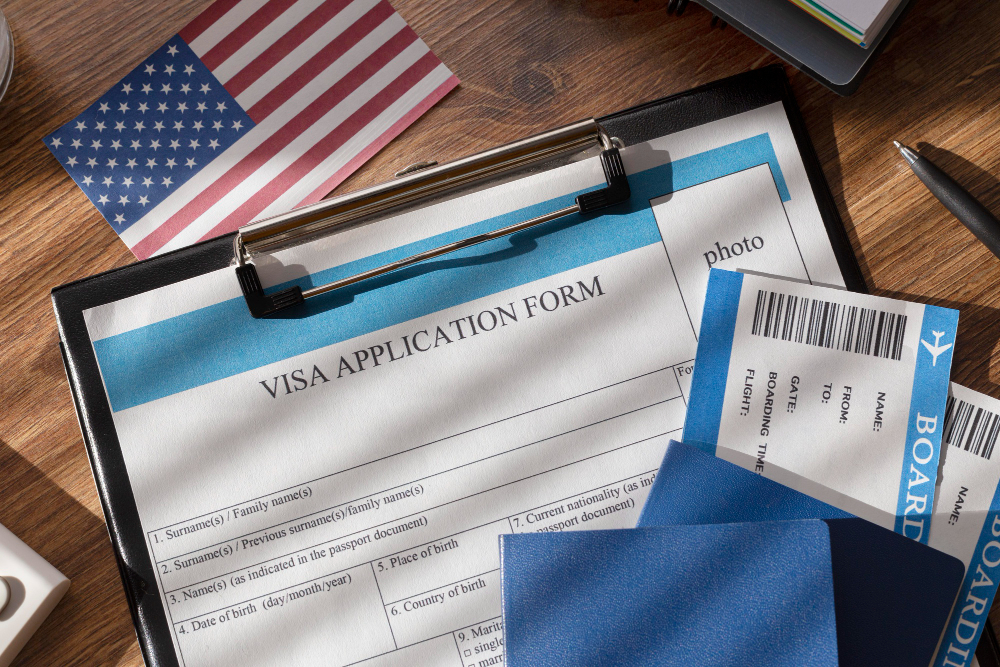Learn the serious travel mistakes to avoid so you don’t end up stuck in a foreign country.

A dream vacation can quickly turn into a nightmare if you’re not prepared. Simple mistakes—like losing your passport or mismanaging your finances—can leave you stranded in a foreign country with no easy way home. To avoid such stressful scenarios, here are 13 common vacation mistakes that could leave you stuck abroad and how to steer clear of them.
1. Forgetting to check your passport’s expiration date can stop your trip before it starts.

Many countries require passports to be valid for at least six months beyond your travel dates. Forgetting to check your expiration date can lead to denied entry or even being unable to board your flight. This mistake often disrupts plans at the worst possible moment. Always check your passport’s validity well in advance and renew it if necessary. Ensuring your documentation is up to date is a simple step that can save your entire trip from falling apart.
2. Failing to research visa requirements can leave you stuck at the airport.

Arriving at your destination without the necessary visa can result in being turned away or detained, disrupting your plans entirely. Some countries require specific visas, even for short visits, and failing to obtain one in advance can cost you time and money. Research your destination’s visa policies thoroughly, and apply well before your travel date. Carry a printed copy of your visa confirmation to avoid confusion at border control. Proper preparation ensures smooth entry and avoids unnecessary stress.
3. Running out of money with no backup plan can leave you helpless.

Unexpected expenses, theft, or emergencies can quickly deplete your travel funds, leaving you stranded. Always carry a mix of payment options, including cash, credit cards, and a backup stash for emergencies. Notify your bank about your travel plans to prevent your cards from being flagged. Additionally, research how to access funds abroad, such as through international ATMs or money transfer services. Having a financial safety net ensures you’re prepared for surprises and avoids unnecessary stress during your trip.
4. Losing your passport without a backup copy can halt your travel plans.

A lost passport can bring your journey to an abrupt halt, leaving you unable to board flights or return home. Always keep digital and physical copies of your passport stored separately from the original. These copies will expedite the replacement process at your country’s embassy or consulate. Research the nearest embassy location and have their contact details handy before you leave. Taking these steps ensures a smoother recovery process and minimizes disruption in the event of a loss.
5. Booking tight flight connections increases the risk of missing your next flight.

Tight layovers may seem convenient, but they leave little room for delays, increasing the likelihood of missing a connection. This mistake can result in rebooking costs, missed schedules, and extended wait times. Plan at least a two- to three-hour buffer for international layovers to account for security checks and potential delays. While longer layovers might seem inconvenient, they can save you from the stress and expense of scrambling to catch your next flight or booking an alternative.
6. Not purchasing travel insurance can leave you unprotected in emergencies.

Travel insurance provides critical protection against unexpected issues, such as medical emergencies, trip cancellations, or lost luggage. Without it, you may face steep costs or logistical headaches when things go wrong. Choose a policy that covers your specific needs, including emergency evacuation or high-value items. For adventurous trips, ensure coverage for activities like skiing or scuba diving. Investing in travel insurance not only protects your finances but also gives you peace of mind to fully enjoy your journey.
7. Overlooking health requirements like vaccinations can lead to entry denial.

Some destinations require proof of vaccinations, such as for yellow fever, as a condition for entry. Arriving without the necessary documentation can result in denied entry or quarantine, disrupting your plans. Research the health requirements for your destination and schedule any required vaccines well before your trip. Carry a copy of your vaccination records, especially if you’re visiting multiple countries. Proper preparation ensures smooth entry and protects your health, allowing you to focus on enjoying your trip.
8. Misreading local transportation schedules can leave you stranded mid-journey.

Relying on public transportation without fully understanding schedules or routes can lead to missed connections and travel delays. Many countries operate with different systems, and sudden changes or cancellations may not be clearly communicated. Research transit options thoroughly, download route maps or relevant apps, and confirm schedules before starting your journey. Have a backup plan, such as a rideshare app or local taxi service, to avoid being stranded. Preparation ensures your travel plans stay on track, even in unfamiliar places.
9. Ignoring local weather conditions can disrupt travel plans completely.

Overlooking the weather can leave you unprepared for flight delays, road closures, or extreme conditions. Monsoon seasons, hurricanes, or snowstorms can derail your itinerary and limit your options. Always research the weather patterns for your destination during your planned travel dates and pack accordingly. Consider flexible travel plans and alternative routes to minimize disruptions caused by adverse conditions. Being prepared for unpredictable weather can save your trip from unexpected complications.
10. Traveling without emergency contacts can delay assistance when needed.

Not having emergency contact information readily available can leave you vulnerable in urgent situations. Before your trip, create a list of essential contacts, including your country’s embassy, local emergency services, and nearby hospitals. Save these on your phone and carry a printed copy as a backup. Knowing who to call in a crisis can save valuable time and provide critical assistance when you need it most, ensuring you’re never entirely on your own abroad.
11. Ignoring phone plan restrictions can leave you without communication.

Using your phone abroad without checking your plan can result in exorbitant charges or a loss of service. Roaming fees and data restrictions may leave you unable to access essential services or contact loved ones. Research your provider’s international options, or purchase a local SIM card for more affordable connectivity. Download maps and key information offline in case of network issues. Staying connected ensures both safety and convenience while navigating unfamiliar places.
12. Not confirming accommodations can leave you without a place to stay.

Arriving at your destination only to find your reservation canceled or overbooked can cause significant stress. Always confirm your accommodations a few days before arrival, either by phone or email. Keep copies of your booking confirmations, along with the contact details for your lodging, in case of issues. Having a backup plan, such as alternative nearby accommodations, ensures you’re not left scrambling for a place to stay in an unfamiliar location.
13. Ignoring customs regulations can result in fines or confiscated items.

Customs rules vary by country, and failing to follow them can lead to fines, confiscated goods, or legal trouble. Items like certain foods, medications, or electronics may be restricted. Research your destination’s customs regulations before packing, and declare any questionable items upon arrival. Being informed prevents unnecessary hassles at customs and ensures a smooth entry process. Avoiding this mistake lets you focus on enjoying your destination without unexpected complications.
